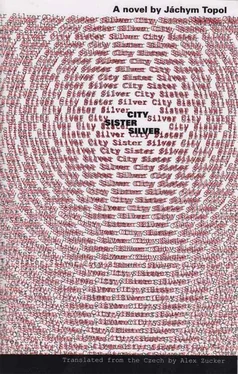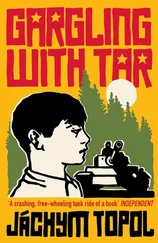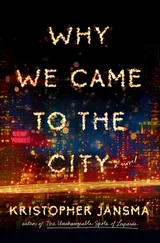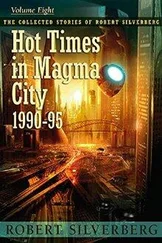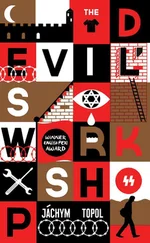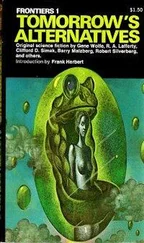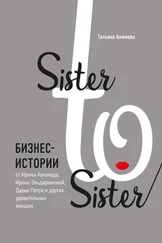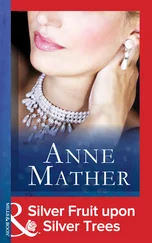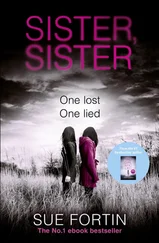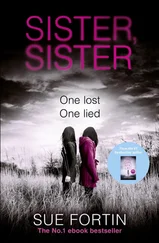Jáchym Topol - City, Sister, Silver
Здесь есть возможность читать онлайн «Jáchym Topol - City, Sister, Silver» весь текст электронной книги совершенно бесплатно (целиком полную версию без сокращений). В некоторых случаях можно слушать аудио, скачать через торрент в формате fb2 и присутствует краткое содержание. Год выпуска: 2000, Издательство: Catbird Press, Жанр: Современная проза, на английском языке. Описание произведения, (предисловие) а так же отзывы посетителей доступны на портале библиотеки ЛибКат.
- Название:City, Sister, Silver
- Автор:
- Издательство:Catbird Press
- Жанр:
- Год:2000
- ISBN:нет данных
- Рейтинг книги:5 / 5. Голосов: 1
-
Избранное:Добавить в избранное
- Отзывы:
-
Ваша оценка:
- 100
- 1
- 2
- 3
- 4
- 5
City, Sister, Silver: краткое содержание, описание и аннотация
Предлагаем к чтению аннотацию, описание, краткое содержание или предисловие (зависит от того, что написал сам автор книги «City, Sister, Silver»). Если вы не нашли необходимую информацию о книге — напишите в комментариях, мы постараемся отыскать её.
City, Sister, Silver — читать онлайн бесплатно полную книгу (весь текст) целиком
Ниже представлен текст книги, разбитый по страницам. Система сохранения места последней прочитанной страницы, позволяет с удобством читать онлайн бесплатно книгу «City, Sister, Silver», без необходимости каждый раз заново искать на чём Вы остановились. Поставьте закладку, и сможете в любой момент перейти на страницу, на которой закончили чтение.
Интервал:
Закладка:
Lemme sleep!
Cepková, get up, listen …
Leave me alone … what time is it?
Hey, there’s other worlds!
Aw baloney, there’s just this one.
Really? Yeah, for real?
Same difference.
Yeah, I guess so.
2
WHAT MADE MY HEART. CHARGED OBJECTS. BACK IN THE SEWER. THE CONSPIRACY.
And then one murky post-bolshevik day I stood in the street and I was alone and nothing can sear that day out of my memory. At the Tchibo coffee shop I had a memorable appointment with Micka where we laid the cornerstone of the Organization.
Nor can anything sear out the era of the Sewer, because that was what made my heart. You could zigzag through the streets and test the weight of the buildings on your back, and you can ask your mirror on the wall: Tell me, who’s the fairest of them all? and the mirror takes a while to answer and it’s scary, and you draw on that while for the tension in your motion, and then the mirror is just an object again and:
the shattered mirror is cut-up snapshots, I look around and it would be nice to write myself into third person, but no, says Potok: I lived in various flats and packs, and when one smiley streetwalking day they let me out of the wicked old city insane asylum, they gave me a social service key and a hole to crawl into. There wasn’t any family around I could stay with. I didn’t want to put up with any anger or affection for a while. So I lay my head down on Gasworks Street and filled my wardrobe with disguises. She-Dog was still in my dreams.
There were boyfriends and girlfriends and conspiracies, you could grin and say yep and nope, hah, and give a wink … there was Bohler and Micka and Čáp and Cepková and Elsa the Lion and others, each traveling in his or her own circles, which sometimes intersected under the pressure we all felt … and there were objects surviving with spirit stored inside them, objects generated in the war against death, shit, and fear, and these are often the material in which images, sounds, and speech originate, including written speech, so ferocious, so meek. And just by the way and like it was no big deal, there were people walking the streets who knew how to make these charged objects. Some of them were survival artists, even if self-destruction was the price they paid to survive. Some of them lived in the Pearl. I wanted to learn. I was hungry. Most of the other inhabitants were too slow for me, dangerous even, sour time’s grayness had gotten them, but I full-throatedly wished good luck to all, contempt is best left for oneself.
No charged object of mine ever stopped water cannons or tanks, brought my dearest girlfriend back, or staved off a single wicked wrinkle. All they did was lap up time; sometimes that’s enough. I ate em up like bread, putting them into my tongue.
Coincidentally the tongue I use is one of Czechs, of Slavs, of slaves, of onetime slaves to Germans and Russians, and it’s a dog’s tongue. A clever dog knows how to survive and what price to pay for survival. He knows when to crouch and when to dodge and when to bite, it’s in his tongue. It’s a tongue that was to have been destroyed, and its time has yet to come; now it never will. Invented by versifiers, spoken by coachmen and maids, and that’s in it too, it evolved its own loops and holes and the wildness of a serpent’s young. It’s a tongue that often had to be spoken only in whispers. It’s tender and cruel, and has some good old words of love, I think, it’s a swift and agile tongue, and it’s always happening. Not even the Avars* could get this tongue of mine, not tanks or burning borders or the most repulsive human species of all: cowardly teachers. What will eventually get it is cash in a shrinking world. But I still have time, as Totilla the barbarian said back in that wicked time of his, before his battle began. Before they got him.
As soon as we’d served out our childhood, the theologian Bohler and I started wheeling and dealing with the Poles. There were times in my youth when I wanted to be Polish. Watching from under a rock. There wasn’t much time, I watched primitively. On account of the avalanches. What I liked best were the simple things; the trick was to make my mind up fast. The Indians were dead already. Poles clobbered cops. Prayed. Drank vodka. Romantics always and in everything, but standing up. Our hatred of the Monster was so great and our feeling of humiliation so strong, we sometimes dreamed about our own murder.
Another of the overlapping shards of glass, a snapshot: Čáp, white with rage, reads a statement from our fathers and grandfathers calling on us to abandon our protest because it might lead to shooting.
Look, this is crazy, says Čáp, they all left town for their cottages! Yeah, so, if they stayed they’d just get locked up, I said knowingly. Yeah but that’s the point! It’s all right for people to be dancin around the truncheons if they know those guys’re in the slammer. But out at their cottages!
So Čáp took up the responsibility that was lying out in the street and put together his own band of juveniles. I was first in line to sign his declaration, because his vision was the wackiest one around. Hey … nothin works, but a guy’s gotta try … our Polish brothers’ve got the Church, all ours’re destroyed … hey! Oh yeah, sure, I nodded, yeah right … it’s like Blake said, either create your own system or be enslaved to someone else’s. Bohler reappears in the shards of mirror: Take that watch from Tokštajn, we’ll hawk it to the Poles, toss in some ideological diversionism. The bazaar of course was illegal … stupid Czechs, they really piss me off, Bohler would say, smiling at the Polish bandits, the Bohos just don’t get it, I mean at least these guys’re men, if they didn’t trade their families could starve to death, what else’re they sposta do, they don’t go for the disgusting sin of whimpering … they steal … the Poles’re always bleedin an fightin, Bohler said dreamily, the Polish nation is the Christ of crazy Eastern Europe, he blasphemed … as the Polish bandits unloaded their cars full of smuggled Kazaks, one strode into the setting sun with a rug thrown over his shoulders, hence the vision … and who could that gentleman hanging there be … the one with his arms spread wide like an airplane?
The older and wiser ones who said, don’t go, they might shoot, were forfeiting us, and if things hadn’t gone so fast they would’ve also lost Čáp’s juveniles … he was getting skinnier every day, curly hair flapping, eyes shining … we’ll hand it out, but not till after the prayer! I told him inside the church … out of the question! Čáp protested, so what if we interrupt, dammit! … half of em can’t make out the words anyway … he had a point, we passed out our flyers with the picture of the Czech lion tugging at his chains, the Christians snatched them up and gaped in terror, stuffing them under their coats, into their bags and purses … one fellow told me “thank you” and in his eyes he had a smile, a smile of joy, he knew there was a time for war and a time for prayer and that the two of them merge together … a single sister shook my hand … she smiled too … let’s hit Ignatius, said Čáp, and off we flew, through passageways and carriageways, swift and agile, glancing left and right, with eyes in the back of our heads, fast and silent, with that good old Katholik joie de vivre … Čáp’s teachings were more and more appealing every day, because he knew the war against communism must lead also to the liberation of ants and every other living creature, that no one must harm the helpless and the young, and that whosoever does must accept the punishment … only his kingdom was a kingdom not of this world. And Čáp’s juveniles amazed me too … the most jaded bunch I ever had the honor to meet … hardcore cynics, extraordinarily reckless at times … at the age when we’d been struggling through school, they skipped out, didn’t give a damn … at the age when we’d torn down a flag here and there and on the sly, they learned to dance under the truncheons … some of them were really young … practically kids … we took our experience from insane asylums and prison cells, first from the ones ten years older than us and then our own … and passed it on to them, only they were tougher … at the age when we’d collected stamps, they collected tear gas cartridges off the cobblestones and had a blast doing it … the Poles were their model too … and their tongue accelerated with their motion along the cobblestones … our eyes sometimes glowed with fire … the machines of the enemy rumbled through the air and underground, but we had a vision.
Читать дальшеИнтервал:
Закладка:
Похожие книги на «City, Sister, Silver»
Представляем Вашему вниманию похожие книги на «City, Sister, Silver» списком для выбора. Мы отобрали схожую по названию и смыслу литературу в надежде предоставить читателям больше вариантов отыскать новые, интересные, ещё непрочитанные произведения.
Обсуждение, отзывы о книге «City, Sister, Silver» и просто собственные мнения читателей. Оставьте ваши комментарии, напишите, что Вы думаете о произведении, его смысле или главных героях. Укажите что конкретно понравилось, а что нет, и почему Вы так считаете.
